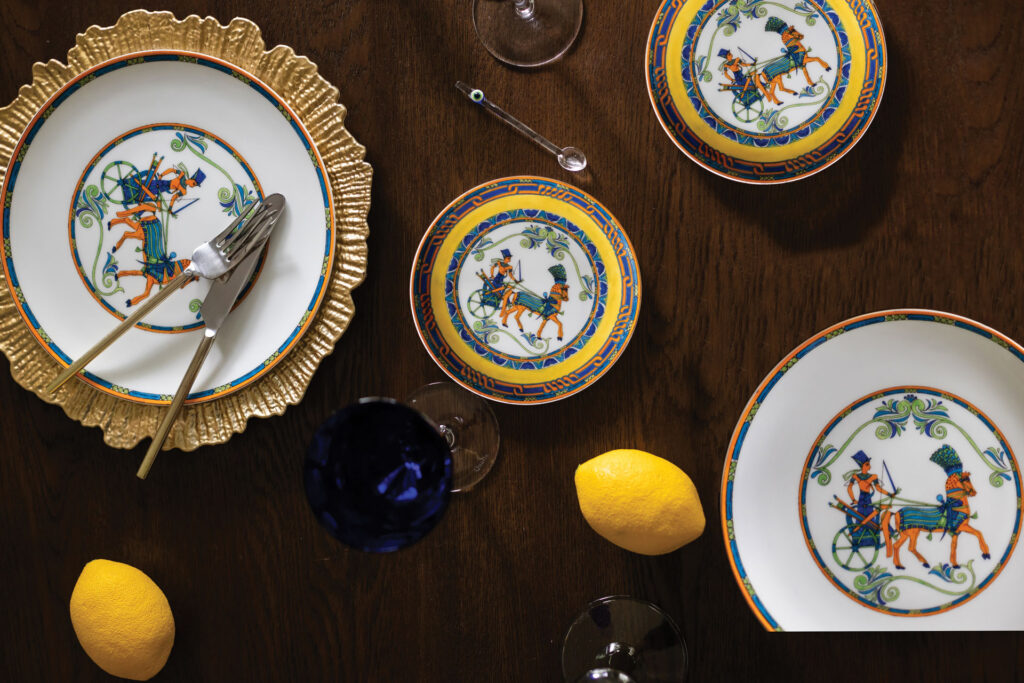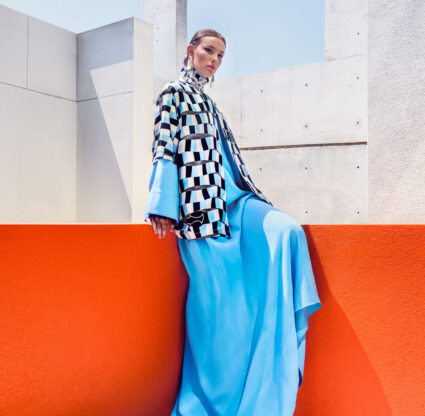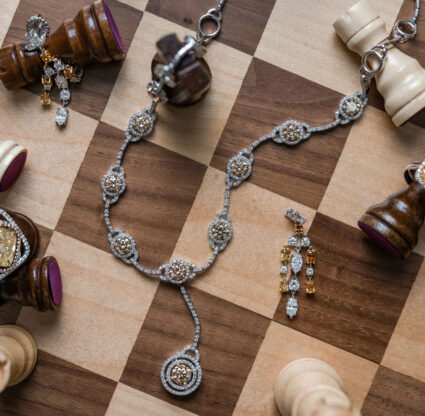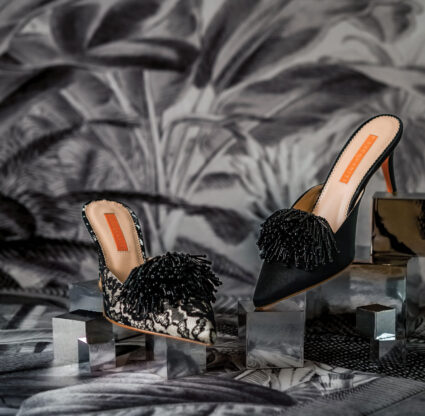For husband-wife team Rasit and Ilkay Turk, the best art is inspired by the past. The pair behind Fort Myers’ The House of Turk & Turk silk accessories line sparked buzz when they expanded into the home last year. Their third homeware collection, The Garden of Nile—launched in February—connects to the brand’s wearable art line, with the same name and similar print as Turk & Turk’s best-selling scarf.
Hailing from Istanbul, Turkey, a former capital of the Roman and Byzantine empires, the couple draws inspiration from ancient cultures. When she painted The Garden of Nile motif, Ilkay thought about the Obelisk of Theodosius, transported from Egypt to her home country during Roman rule. That was more than two decades ago, when Ilkay had a fashion line in Dallas, and the emblem remains equally stylish. The design’s anchoring chariot racer graphic recalls the Roman aristocracy’s sport, and an abstract lily flower nods to the symbol of purity in Byzantine art.
Keeping in line with the Turks’ penchant for vibrant colors, the pieces (from pillows to plates to placemats) blend the brand’s signature orange hue with Egyptian blue—a symbolic element for Egyptians, who first produced blue dye, the world’s oldest synthetic color, around 2500 B.C.
Rasit and Ilkay similarly commit to innovation but always with a focus on time-honored craftsmanship. They worked with global artisans they found while scouting bazaars, boutiques and the web to design the pieces, which can mix and match with one-off treasures the couple can custom create, like cobalt crystal wine glasses or handpainted, mirrored serving trays.
Within The Garden of Nile, placemats are adorned by an Indian sea glass bead artist; the 100 percent silk twill that defines The House of Turk & Turk fashion line covers pillows; luxe tablecloths are made of silk sateen; and for the plates, they worked with a fine china manufacturer that agreed to the brand’s hallmark small-batch production. Commitment to well-crafted, limited-edition pieces (they’re only making about 15 sets of every item) is ingrained in the Turks from their early days in Istanbul. “When you live in that [rich] culture, you are obligated to respectfully create the best,” Rasit says.





